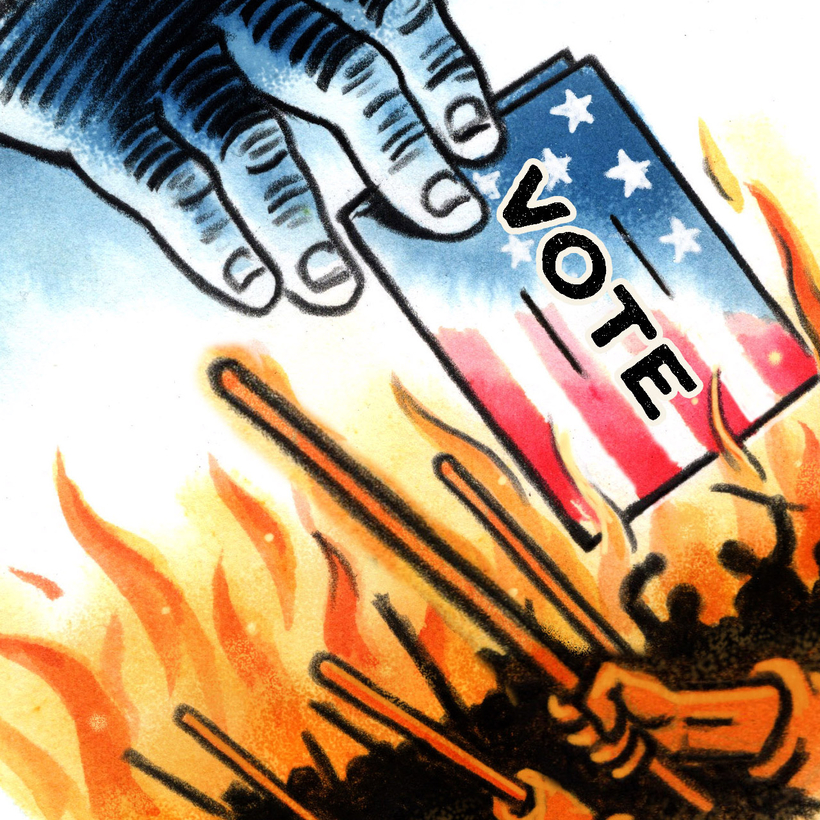By now, the macro story of Donald Trump’s effort to upend the 2020 election is well known: the mendacious presidential bluster, the comic-opera lawsuits, the tragedy of the January 6 Capitol riot. The strength of The Steal, Mark Bowden and Matthew Teague’s meticulous micro-narrative published on the one-year anniversary of the attacks, is that it zooms in through the forest and down to the grassroots, where a deluded assortment of self-styled patriots sought to subvert democracy in the name of saving it, and a brave band of state and local officials—most of them Trump-supporting Republicans, in fact—actually did save it. Just barely.
The familiar players are all here: Rudy Giuliani, melting down in real time; Brad Raffensperger, the laconic Georgia secretary of state who resisted Trump’s ratcheting pressure to find nonexistent G.O.P. votes; even Jacob Chansley, the bare-chested, horn-headed “QAnon Shaman,” who strode tattooed through the Senate chamber on January 6, makes a cameo appearance, protesting the vote count in Arizona.


